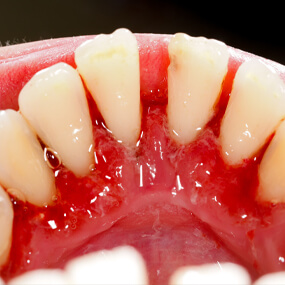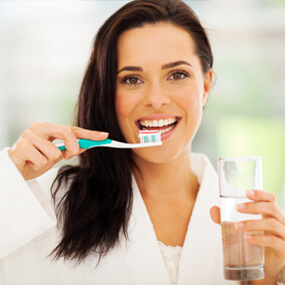Rising Incidence of Sleep Apnea Endangers Many

Although many think that sleep apnea is a hidden issue with few consequences, the public perception of this problem was forever changed in early 2018 when sleep apnea made the news in a serious and dramatic way. Due to undiagnosed sleep apnea, a train engineer crashed a commuter train, which killed one person and injured an additional 110. However, this is not the only time this issue has arisen in the news. In 2017, according to the National Transportation Safety Board, a train on the Long Island Railroad crashed due to an engineer’s fatigue secondary to sleep apnea. This crash injured 108 individuals.
One key symptom of sleep apnea is extreme tiredness during the day, and it can cause all sorts of accidents besides these major train crashes. For example, studies have shown that vehicular accidents and workplace accidents double in individuals who have obstructive sleep apnea.
The Basics of Sleep Apnea
Sleep apnea is a serious condition that affects individuals during sleep, causing them to breathe irregularly and even to stop breathing at times. While there are several types of sleep apnea, the most common is obstructive sleep apnea, in which the throat relaxes and completely closes, blocking air from getting into the lungs. The individual actually stops breathing for up to a minute, which then causes oxygen saturation levels to lower significantly in the body.
When one’s sleep is disturbed by erratic breathing, that individual spends more time in a light sleeping pattern rather than in more restful deep sleep. Because of this, these individuals may feel very tired and poorly rested the next day despite having spent plenty of time in bed.
The most common signs that an individual has sleep apnea are regular nighttime snoring, grinding of the teeth, which is commonly called sleep bruxism, and excessive sleepiness during the day. However, over time, it can also lead to several other chronic health conditions, which can become quite serious without treatment. In particular, sleep apnea is tied to cardiovascular disease, including increased blood pressure and stroke. In addition, it can eventually lead to gastroesophageal reflux disease and diabetes, along with an overall decreased quality of life.
Individuals who are aware that they frequently snore during the night or who wake up frequently gasping for breath should visit a trusted dentist who has experience in treating sleep apnea. In many cases, individuals may not be aware of these symptoms in themselves but can trust their loved ones to help them catch dangerous signs of sleep apnea.
Common Signs and Symptoms of Sleep Apnea
Many times, one’s dentist will be the first person to pinpoint sleep apnea as a problem. This is because receding gums, cavities, and ground-down enamel on the teeth can all signal this problem. Because an experienced dentist has the knowledge to recognize abnormalities in the soft tissues within the mouth, he or she is uniquely able to help patients know whether they have sleep apnea.
The following are just a few of the common signs of sleep apnea that an individual may notice on his or her own or that a loved one may be able to point out to the individual.
- Excessive fatigue – Although there can be many underlying reasons for daytime fatigue and exhaustion, poor nighttime rest due to sleep apnea could be one cause. After other possible causes, including stress and situational lack of sleep, have been ruled out, sleep apnea may be the obvious concern.
- Loud snoring or gasping for air – Loud snoring can signal that the body is having difficulty getting air from the nose or mouth past the excessive soft tissues in the throat. Gasping or choking noises signal that the body is in desperate need of oxygen.
- Frequent daytime headaches – Both sleep apnea, which cuts off the oxygen supply to the body, and nighttime tooth grinding can create unwelcome headaches the next morning.
- Frequent nighttime bathroom use – While the body normally reduces the urge to urinate during deep sleep patterns, lighter sleep may signal wakefulness to the brain and increase nighttime frequency.
- Changes in mood and memory – Those who are not well-rested may find that they are irritable and moody the next day and may struggle with concentration and recall.
- Frequent naps – Chronic fatigue can lead to the need for frequent daytime naps.
The Many Dangers of Living With Undiagnosed Sleep Apnea
Sleep apnea is not just irritating. Instead, it is actually dangerous because it reduces the amount of restorative sleep that the body can get at night. Without enough sleep, many organs, including the heart and brain, may struggle to function normally, and the immune system may also not function optimally. Some of the dangers of living with undiagnosed sleep apnea could include the following:
- Heart disease
- Stroke
- Regular headaches
- Unexplained weight gain
- Diabetes
- Gastroesophageal reflux disease
- Mental health issues, including anxiety and depression
Life-Changing Treatments for Sleep Apnea
If you believe that you may be struggling with sleep apnea, we can help you at Scottsdale Cosmetic Dentistry Excellence. Our experienced cosmetic dentist, Dr. Jeffrey D. Clark, can treat both sleep apnea and sleep bruxism, two problems that often occur together. Those who have sleep apnea typically grind their teeth, but with treatment, you can discover a healthier, more beautiful smile. In addition, you can enjoy better sleep, a lowered risk of numerous chronic health conditions, and a better quality of life overall.
Easy Treatment With Snoring Appliances
One of the best and easiest options for reducing sleep apnea episodes and for addressing the most common risk factor for sleep apnea is an oral appliance that you can wear every night. An oral appliance adjusts the positioning of your jaw and tongue to ensure that your airway stays open. Dr. Clark can create a custom fit for you that is both comfortable and effective.
This non-invasive treatment is easy to use and helps you sleep restfully without any additional noise. By supporting your jaw and moving it slightly forward, the appliance can reduce your snoring and decrease sleep apnea episodes. Thus, it also decreases nighttime tooth grinding, protecting your tooth enamel.
Discover Better Sleep and a Healthier Life With Help from Scottsdale Cosmetic Dentistry Excellence
Therapy with a snoring appliance can give you an incredibly restful night of sleep while also improving the health of your smile. Over time, you may find that it can also improve your overall health, daily energy, relationships, and quality of life. It is vital that sleep apnea and sleep bruxism be diagnosed and treated early to avoid complications or chronic problems with your health. If you believe that sleep apnea may be a problem for you or if you find yourself struggling to stay awake during the day, contact Scottsdale Cosmetic Dentistry Excellence today at 480 585 1853 to schedule a complete consultation with our experienced cosmetic dentist, Dr. Clark.




